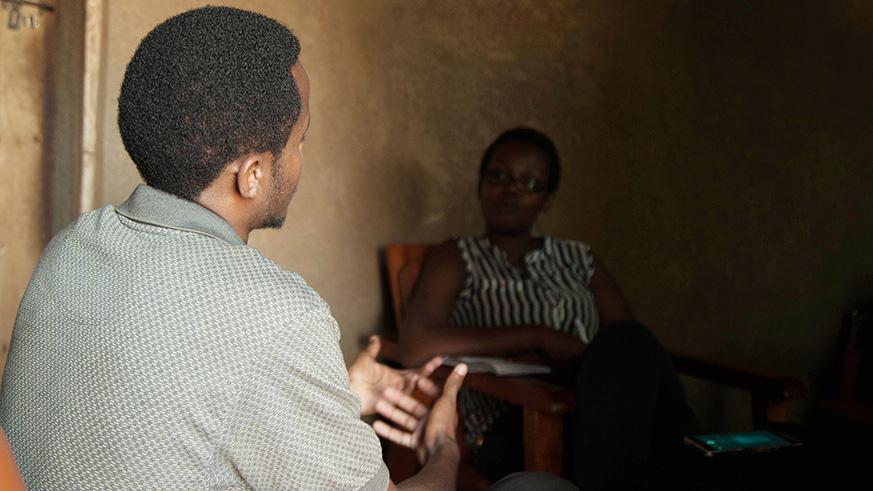
Emmanuel Ntirenganya, The New Times
The law governing the Fund for Support and Assistance to Survivors of the Genocide against the Tutsi (FARG) does not recognise children born of rape during the Genocide among those entitled for relief assistance given to needy survivors.
As a result, they say, they have been living in deprivation and isolation for over 20 years: they lack both financial support for their education, and the society does not welcome them as they are considered “sons or daughters of Genocide perpetrators”.
These children were largely raised in families of survivors and they do not know the families of those who raped their mothers, both the children and activists contend.
Some of the mothers, who have been struggling to support them, are getting old, weak or even die due to HIV contracted during rape.
It is against that background that various organisations as well as the association of Genocide widows – Avega Agahozo – are rooting for support towards the welfare of such children, especially through education, both conventional as well as technical and vocational courses.
Jean Claude Mugwaneza was born after his mother was raped while she was hiding near Kigali Stadium in Nyamirambo, Kigali.
Mugwaneza is a representative of children born of rape who receive support from Hope and Peace Foundation (HPF), an organisation based in Nyakabanda, Nyarugenge District.
Established in 2013, HPF is engaged in social therapy, counseling for survivors, especially victims of rape, and children born from rape during the Genocide.
Talking about the challenges they have been facing, the 23-year-old said “when you ask your mother [to tell you who is] your father, she cries as this evokes memories of the suffering at the hands of your so-called father.”
“We are seen in the image of Interahamwe militia. When they see us, the families of survivors call us names including the son/daughter of the enemy who exterminated our loved ones, or the child who reminds us of genocide, which leaves us isolated from society as we are not treated like other children,” he said adding:
Mugwaneza managed to complete secondary school thanks to his mother who worked as a casual labourer and contributions from well-wishers.
At the moment, even though he completed and passed his A-level exams in 2016, he has yet to get his certificate because he owes his former school about Rwf100,000 in arrears.
His dream is to pursue university studies, but, cannot afford it, he says.
“Our mothers are getting old. The Rwf5,000 [per month] as direct support from FARG that they each get is not enough. We do not have any organisation that funds our education,” he said pleading for support.
Appeal for urgent support
The coordinator of Hope and Peace Foundation, Honorine Uwababyeyi, said that some of the mothers who are victims of rape have started to pass on, which is one of the reasons to call for urgent support for these children.
Hope and Peace Foundation currently helps 73 children born of rape and 63 rape victims.
“They [children] are now turning 23 or 24 since they were born in 1995. They are young men and women who need care,” Uwababyeyi said, arguing that they are living proof that rape was one of the weapons of the Genocide against the Tutsi.
The president of Avega-Agahozo, Valerie Mukabayire, told The New Times that even though victims of rape have undergone counseling and learnt to live with their woes, the children face difficulties because of their past.
“The children are suffering. There is need to strongly advocate for them so that they get the support they so urgently need because they are a special group of people with problems that also stem from the Genocide,” she said.
Education is key
Noting that not everyone can be supported by FARG, Mukabayire said that there are other institutions or development partners that can offer help to address such challenges, citing children from needy families who studied with support from the Ministry of Local Government (MINALOC).
“We continue to include that (education) aspect in our advocacy so that those who can continue university can pursue it, while others can enroll in technical and vocational education and training for them to have a better future and support their mothers,” she said.
FARG officials say they are aware of the issue but these children – like many others – were not under the care of FARG.
Every child born after the Genocide, either through rape or normal conception, is not catered for by FARG, according the law, says the Fund’s director general, Théophile Ruberangeyo.
“Some [of the children born of rape] have become desperate, and some end up in substance abuse because they are somehow rejected by their mothers’ family,” he said adding that the children need assistance from government or other institutions.
The founder of SEVOTA, a solidarity for development of widows and orphans of Genocide, victims of rape as well as children born of it, Godeliève Mukasarasi, told The New Times the organisation carried out research which revealed that the children lacked confidence and their future looked bleak.
